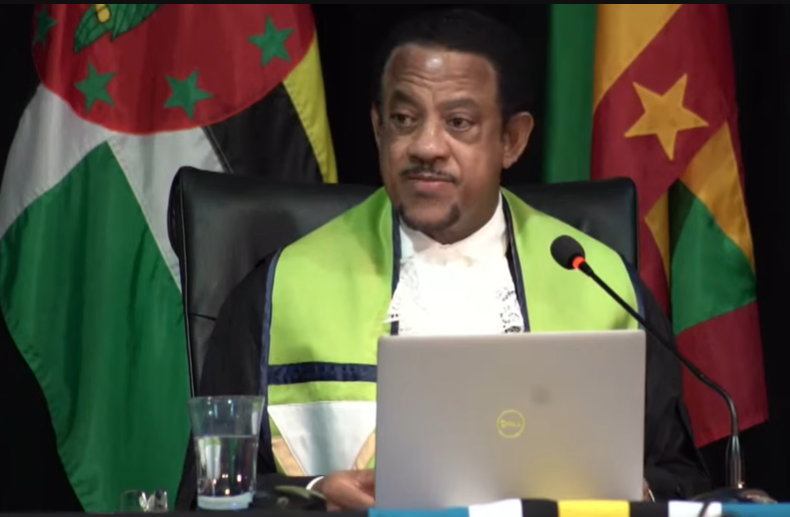

The Eastern Caribbean Supreme Court (ECSC) commenced the 2025 law year on Friday, reporting notable progress in enhancing justice delivery. However, Acting Chief Justice Mario Michel acknowledged that pressing challenges remain for the regional judicial body.
Hosted at the National Cultural Centre in Saint Lucia, under the theme Accessibility and Awareness – The ECSC Bridging the Gap Through Community Engagement, the ceremonial sitting celebrated the court’s achievements while also highlighting areas of concern.
Justice Michel, a former Minister of Education in Saint Lucia, identified the transformation driven by technology as one of the court’s key accomplishments.
He explained that the maturation of the electronic litigation system, introduced six years ago, combined with the support of artificial intelligence, has significantly improved the court’s capacity to deliver justice efficiently.
Using statistics from 2023 – noting that 2024 information was not yet available – Justice Michel said a dent was being made in the backlog of cases, which was demonstrated by the overall 100 per cent case clearance rate in ECSC’s High Court.
“A total of 454 matters were filed in the Court of Appeal in 2023. The Court of Appeal heard 324 matters in the full court sittings and 499 matters in chamber hearings. The court delivered 97 written judgments and 473 oral judgments,” the acting chief justice told attendees at the special sitting, including members of the local and regional legal community, the media, and students.
“Like, in the High Court, there is currently a more than 100 per cent clearance rate of matters filed in the Court of Appeal. It is also evident that there is a very heavy caseload dealt with by the Court of Appeal, which is very significant given the relatively small size of the appellate bench.”
Justice Michel added: “So both the High Court and the Court of Appeal of the Eastern Caribbean Supreme Court have been performing very well in terms of the clearance rates for matters filed in the courts and the rate of delivery of judgments in matters heard by the courts. And this level of performance compares very favourably with courts within and without the Caribbean region. Indeed, it may well be said that we are streets ahead of our neighbours.”
He did acknowledge, though, that there were still delays in the delivery of judgments.
Despite the advancements, Justice Michel highlighted significant challenges, particularly the widespread lack of public understanding of the judicial system. To address this, a public education programme has been initiated to educate citizens in the member states. This programme will include sensitising students through various initiatives such as lectures and art competitions in schools.
“This lack of understanding is not restricted to the hypothetical man on the street. It exists too, amongst men and women in every strata of the countries in this common juridical space that we share. The same is true of the awareness of our citizenry about the judicial officers who mend the court system,” Justice Michel noted.
“There are several other aspects of our court system and our judicial system which are not understood by the people served by them. This lack of understanding is made worse by the wholesale consumption of American television. To combat this lack of understanding and awareness, I have initiated a public education programme designed to educate the people of our six states and territories about our judiciary and our court system as a whole.”
In 2025, a For The Record (FTR) Cloud Platform – cloud technology with transformative functionality for courts to access, store, and manage official content – is expected to be established in Saint Lucia. This platform aims to further embrace the move toward technology and justice.
Related News

Police Looking For Relatives of Elderly Man Found in Roseau

Duo Remanded to Prison Following New Year’s Day Bust

14 Young People To Be Awarded in Queen’s Commonwealth Essay Competition


